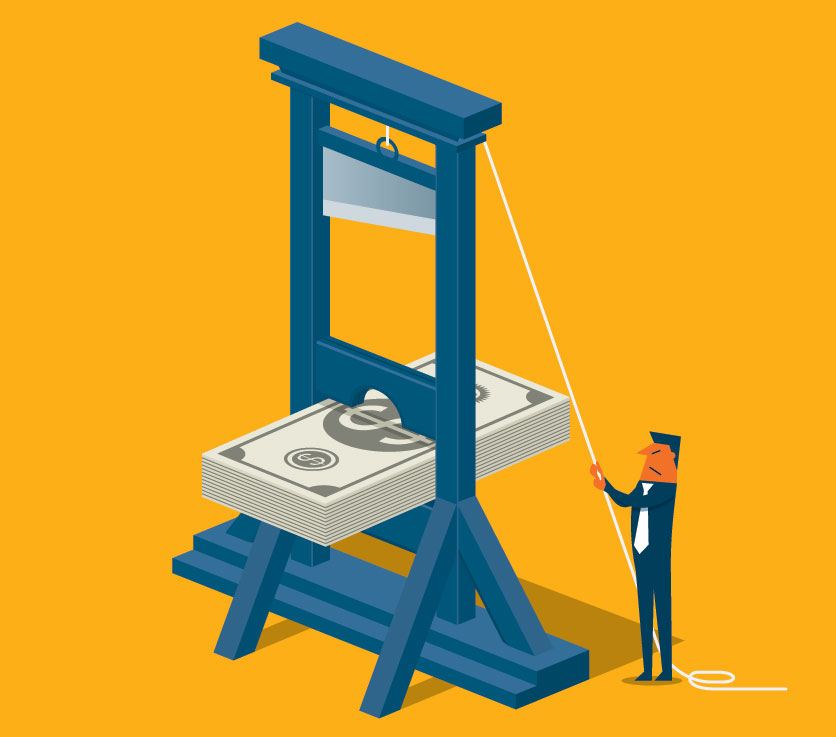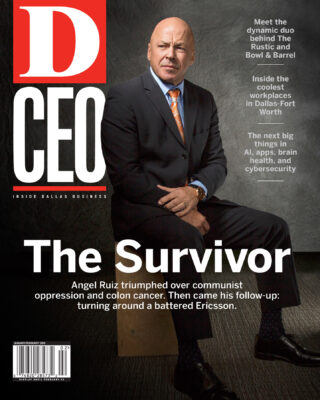Living in the digital world, you sometimes feel like you never have to leave home. Want something? Click on Amazon. Need a friend? Go to Facebook. Want to learn about anything? Surf the Web.
But building a business, even an online business, still requires a human connection. So say Brenda Stoner and Daniel McCarthy, two North Texas entrepreneurs who have created fast-growing digital businesses by putting a premium on people.
Stoner, a former engineer at Texas Instruments-turned-serial entrepreneur, is the founder of Pickup, an Uber-like app that allows consumers to order a pickup truck and driver through their smartphones. Launched in 2014, Pickup contracts with dozens of drivers, including military veterans and firefighters, who Stoner says handled thousands of pickups throughout Dallas-Fort Worth in its first year. It’s now plotting an expansion into other markets in Texas and other states.
Pickup has only two full-time employees on its payroll. It uses outside companies to manage its technology (they’re equity partners in the business), and drivers who operate as independent contractors. The key to its success, Stoner says, has been building a culture among those people—a particular challenge when the team is so spread out. Faced with managing the work of programmers and techies from Silicon Valley to Germany and Colombia, Stoner uses electronic chats and other tools to communicate as much as possible. But she still finds the need to bring everybody into the same room from time to time.
“Culture is best installed by just looking across the table and talking about what you care about,” she says. “There are a lot of tools to do it, but something is lost if the human connection is not there.”
McCarthy has a similar philosophy. The 29-year-old Fort Worth native runs Musicbed, which licenses music for use in advertising, television shows, and film. In five years, the company has built a catalog of more than 650 bands and 30 film composers who showcase their songs on its website. McCarthy said Musicbed handles more than 13,000 licenses a month, working with advertising agencies to serve clients as large and diverse as Nike, Google, Netflix, and JetBlue Airways. Revenue has been doubling annually.
Although technology enables its business to be conducted over the Internet, McCarthy believes Musicbed’s success lies with its people and the relationships they have built in the industry. So last year, it invested $2 million into a 16,000-square-foot facility in north Fort Worth, complete with a studio where it hosts artists and holds private concerts.
The way McCarthy sees it, technology is just a tool that allows Musicbed to attract more customers, but it’s up to his team to keep them coming back.
“Technology gives you the freedom to not have any direct contact with customers,” he says. “For us, that’s where it can become a burden. It’s really important to me that our 50 employees get an opportunity to shake hands with the people they represent. Those people have stories; those people have quit part-time jobs to do what they do. They have dreams.”
Nurturing such human contact has been at the center of the surge in tech startups in Dallas-Fort Worth according to Trey Bowles, co-founder and CEO of the Dallas Entrepreneur Center.
In recent years, the region has developed an ecosystem for entrepreneurs, he says, including more than a dozen incubators or accelerators, angel investor networks, and university programs. The many sources of support have allowed entrepreneurs to form a community, rather than work alone in their garages. At the Addison Treehouse, where Pickup now is based, activities are designed to create what Bowles calls “organic collisions,” where people meet and are able to help each other solve problems. There are education programs to provide help with business plans, whiteboard sessions run by mentors, and space for businesses to set up shop.
“DFW has always been a hotbed for entrepreneurs,” Bowles says. “Really what has happened is there was an aggregation of those entrepreneurs into a community.”
McCarthy says he likes to think of Musicbed as “an old business stuck in a new business’ body,” where building relationships still matters. “To me, technology just allows you to widen your front door, but you should continue to operate the way good businesses have operated for the past 100 years.”
In other words, it’s not technology that will separate a digital business from the pack, but the people who are using it. That’s definitely something I can “like.”






